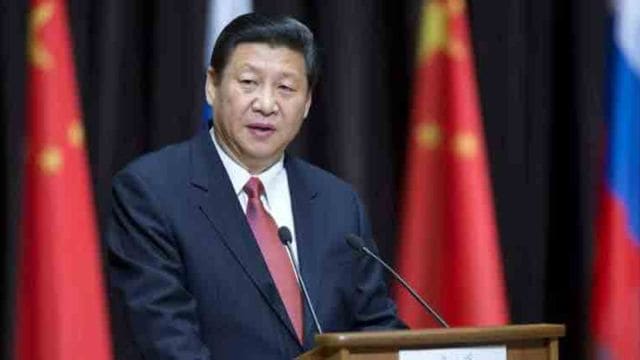Xi Jinping calls for ‘reunification’ with Taiwan in message to newly elected opposition leader
Cheng, a former lawmaker who takes charge of the KMT on November 1, did not mention reunification in her reply to Xi.
 Chinese President Xi Jinping has called for efforts to advance “reunification” in a message congratulating Cheng Li-wun. (File Photo)
Chinese President Xi Jinping has called for efforts to advance “reunification” in a message congratulating Cheng Li-wun. (File Photo) Chinese President Xi Jinping has called for efforts to advance “reunification” in a message congratulating Cheng Li-wun, the newly elected leader of Taiwan’s main opposition party, the Kuomintang (KMT).
Xi, speaking in his role as head of the Communist Party of China, told Cheng that both parties should work together to “strengthen their common political foundation,” according to the official Xinhua news agency.
“The two parties should unite the majority of people in Taiwan to deepen exchanges and cooperation, boost common development, and advance national reunification,” Xi said, as reported by Reuters.
Cheng, a former lawmaker who takes charge of the KMT on November 1, did not mention reunification in her reply to Xi. She said both sides of the Taiwan Strait were “members of the Chinese nation,” using a phrase referring to shared ethnicity rather than political union.
“Both parties should, in light of the current situation, strengthen cross-Strait exchanges and cooperation on the existing foundation, and promote peace and stability across the Taiwan Strait,” Cheng said, according to a KMT statement cited by Reuters.
Taiwan’s government, led by President Lai Ching-te and his Democratic Progressive Party (DPP), has long rejected Beijing’s sovereignty claims over the island. China views Taiwan as its own territory and refuses to engage with Lai, labelling him a “separatist.”
Accusations of Chinese interference
While the KMT lost the presidential election last year, it and its ally, the Taiwan People’s Party, together hold a majority in parliament. Cheng, 55, opposes increasing defence spending a key policy of Lai’s administration and defeated former Taipei mayor Hau Lung-bin, the KMT establishment’s candidate.
The party’s internal vote was overshadowed by accusations of Chinese interference. Jaw Shau-kong, the KMT’s vice-presidential candidate in last year’s election and a supporter of Hau, said social media accounts had spread disinformation about him during the campaign.
China’s government dismissed those claims, saying the KMT election was an “internal matter” and that online comments did not reflect its official position.
Writing on Facebook, Jaw urged his party to reduce pro-China influence. “The KMT must recognise that elections are held in Taiwan, and voters are in Taiwan, not mainland China,” he said.
Late on Saturday, DPP spokesperson Justin Wu also alleged that there were “clear signs” of Chinese interference in the KMT election a charge the party dismissed in a short statement saying, “Who is this?”







